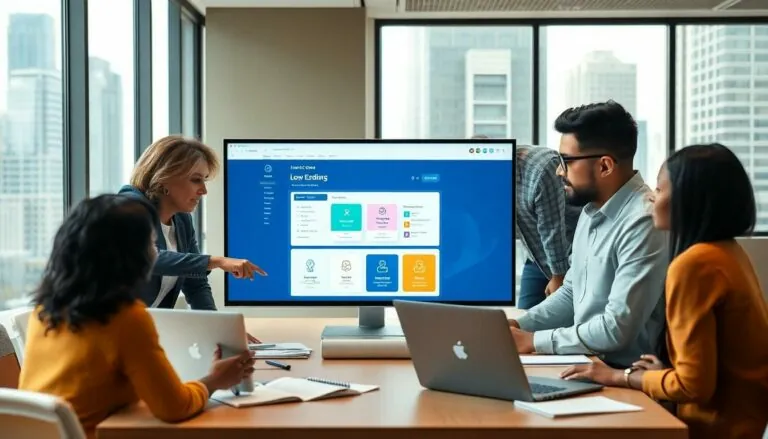Table of Contents
ToggleIn a world where computers reign supreme, the unsung heroes keeping them alive and kicking are computer hardware technicians. These tech-savvy wizards possess the magical ability to diagnose issues faster than you can say “blue screen of death.” Whether it’s replacing a faulty hard drive or upgrading a graphics card, they turn tech troubles into triumphs with a flick of their screwdriver.
But let’s face it—being a computer hardware technician isn’t just about fixing gadgets; it’s also about embracing the quirks of technology. Picture this: a technician surrounded by a symphony of beeping machines, armed with tools and a caffeine-fueled determination. With every repair, they not only save the day but also keep the digital chaos at bay. So, if you’ve ever wondered who’s behind the curtain making sure your devices run smoothly, look no further than these skilled tech troubleshooters.
Overview of Computer Hardware Technician Role
Computer hardware technicians play a vital role in technology maintenance and repair. Their expertise involves diagnosing issues efficiently, whether it’s replacing hard drives or upgrading graphics cards. Technicians ensure devices operate smoothly, addressing software conflicts or hardware failures proactively.
Responsibilities include assembling and installing computer components. They also conduct routine inspections to identify potential problems. Testing hardware functionality is essential, as this helps maintain optimal performance levels for users.
In addition to technical skills, communication is crucial. Technicians often interact with clients, explaining issues and providing solutions clearly. They must stay informed about the latest technologies and repair techniques. Continuous learning enhances their ability to adapt to rapidly evolving industry standards.
Work environments are diverse, ranging from corporate offices to repair shops. Each setting presents unique challenges, requiring technicians to demonstrate problem-solving skills. Environment considerations, such as noise from machinery, contribute to the dynamics of their daily tasks.
Certifications play an important role in validating a technician’s skills. Recognized qualifications include CompTIA A+ and Microsoft Certified: Modern Desktop Administrator Associate. These credentials enhance employability and showcase proficiency in hardware and software support.
Overall, a computer hardware technician’s role combines technical skill, customer interaction, and continuous education. Their dedication ensures the effective functioning of technology, enabling users to leverage devices for personal and professional purposes.
Core Responsibilities
Computer hardware technicians play a vital role in ensuring smooth operation of technology. Their responsibilities span various tasks, each contributing to the efficiency and reliability of computer systems.
Installation and Upgrading
Installation tasks cover assembling new computer components and integrating peripherals. Technicians configure CPUs, motherboards, and memory modules, ensuring compatibility and optimal performance. Upgrading systems involves replacing outdated hardware, like graphics cards or storage drives. Technicians assess specific needs, recommend suitable upgrades, and implement changes to enhance functionality. Understanding customer requirements remains crucial, as tailored solutions lead to improved user experiences.
Troubleshooting and Repair
Troubleshooting involves diagnosing issues swiftly to minimize downtime. Technicians use diagnostic tools and software to identify hardware malfunctions and determine root causes. Repairing broken components is a critical aspect of their role, encompassing tasks such as replacing faulty parts and restoring hardware to working condition. Moreover, technicians document problems and solutions for future reference, helping to streamline repairs and create a knowledge base.
Maintenance Tasks
Routine maintenance tasks ensure hardware longevity and optimal performance. Technicians regularly perform system checks, including cleaning internal components and updating firmware. They also monitor system performance, identifying potential issues before they escalate. Establishing maintenance schedules helps prevent failures and keeps systems running efficiently. Communication with clients regarding maintenance needs and best practices enhances system reliability and extends the life of computer hardware.
Required Skills and Qualifications
Computer hardware technicians require a mix of technical and soft skills to excel in their roles. Mastery in these areas ensures they can address diverse challenges in technology effectively.
Technical Skills
Proficiency in hardware installation stands as a fundamental skill. Familiarity with components like CPUs, motherboards, and graphics cards is essential. Understanding operating systems plays a crucial role in troubleshooting and configuring devices. Knowledge in diagnostics is vital for quickly identifying and resolving issues. Experience with various networking concepts enhances their ability to manage hardware in different environments. Familiarity with safety protocols ensures that technicians work safely. Staying updated on emerging technologies allows them to recommend the best hardware upgrades.
Soft Skills
Strong communication skills facilitate effective interaction with clients. Listening skills are important for understanding customers’ needs and concerns. Problem-solving abilities enhance a technician’s capacity to find effective solutions efficiently. Patience is vital when resolving complex issues. An eye for detail helps technicians maintain high-quality standards. Adaptability ensures they can navigate the fast-paced technology landscape. Teamwork skills contribute to collaborating effectively with others in various settings.
Career Path and Opportunities
Computer hardware technicians find diverse career opportunities within the technology sector. Various roles exist, from entry-level positions to advanced technical specialist roles.
Job Outlook
The job outlook for computer hardware technicians remains robust. According to the U.S. Bureau of Labor Statistics, employment in this field is projected to grow by 8% from 2020 to 2030, reflecting the increasing reliance on technology across industries. Demand for technicians who can address hardware issues like repairs and upgrades continues to rise. Moreover, as businesses increasingly adopt cloud computing and virtualization, demand for skilled technicians able to manage these technologies grows further. Economic factors, such as more organizations investing in IT infrastructure, can also create additional job openings.
Certifications and Further Education
Certifications enhance the employability of computer hardware technicians. Recognized certifications like CompTIA A+ and Microsoft Certified: Modern Desktop Administrator Associate provide a competitive edge. Many technicians pursue further education in information technology or computer science to gain in-depth knowledge and stay current with industry developments. Trade schools and online courses offer practical training, ensuring technicians develop essential skills. Attending workshops and seminars fosters continuous learning and networking opportunities. Regularly updating certifications ensures technicians remain experts in evolving technologies.
Computer hardware technicians play a vital role in today’s technology-driven world. Their expertise ensures that systems run smoothly and efficiently. With a blend of technical knowledge and strong communication skills, they address a wide range of hardware issues while providing valuable customer support.
As the demand for technology continues to grow, the opportunities for skilled technicians are expanding. Continuous learning and certification are essential for staying competitive in this ever-evolving field. By adapting to new technologies and honing their skills, computer hardware technicians will remain indispensable in maintaining the functionality of the devices people rely on daily.






